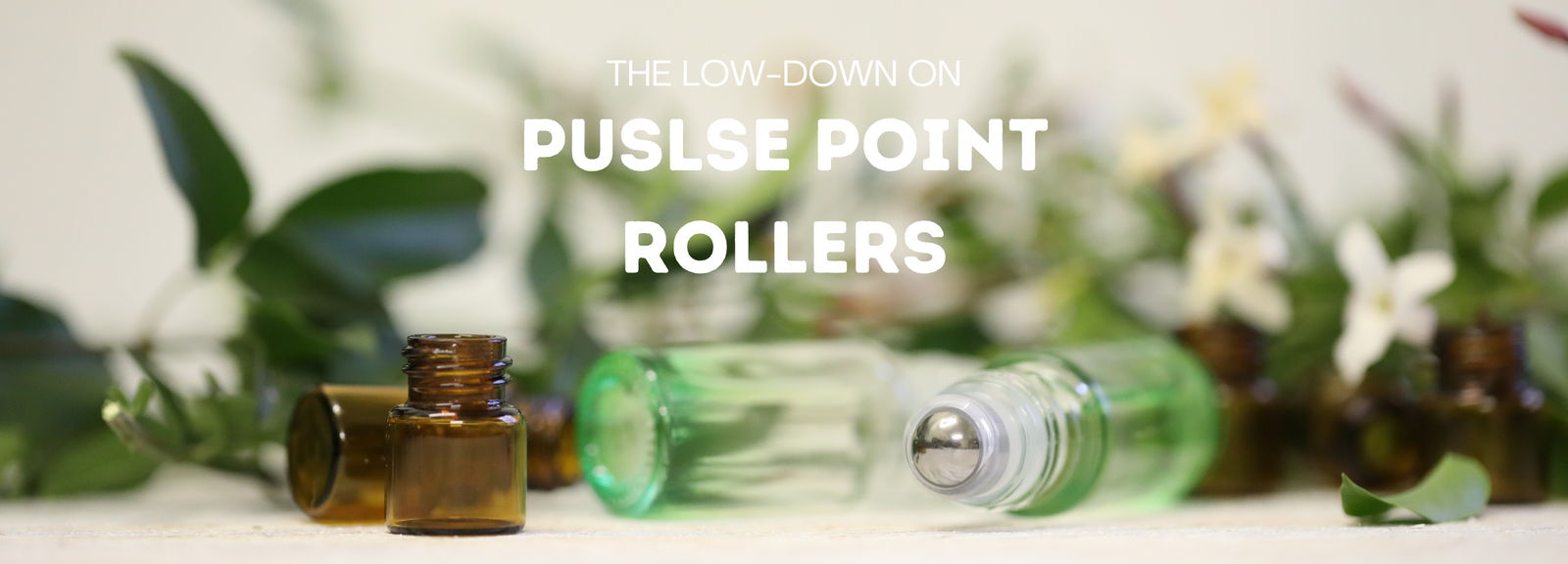Your Cart is Empty
Flat rate $8.95 shipping - Free on orders over $100.

Over the past few years, there has definitely been a lot of talk about the value of practising self-care and developing a routine. The concept of taking care of one's physical and mental health with a holistic (whole body) approach is admirable, but it can be a little daunting.
Self-care practises may appear like an uphill battle for people who have never engaged in them, as well as impractical in today's extremely busy (and chaotic) environment. You may have given it a shot but failed to stick with it, leaving you with the impression that they lack the necessary aptitude.
You might feel up to the task, but acknowledging your need for self-care is another. Another is actually starting a self-care routine that can enhance your life, especially in light of all the uncontrollable events that occur in the world.
Everyone's definition of self-care, though, is different. Your preferred method of stress relief might not be beneficial to your best friend. Even partners in strong, committed relationships often have distinct differences when it comes to things like companionship, physical activity, and leisure time.
Here are our top tips;
Your body's physical needs include those that keep it healthy and functioning properly.
When thinking about physical self-care, list your needs and any actions you already take to address them. Put more emphasis on these in your self-care plan if you find any areas where you'd like to make improvements.
Adults typically require 7 to 9 hours of sleep per night. Regularly not getting enough good sleep can have an impact on your mood, ability to concentrate, and general health.
Not getting the appropriate amount of sleep is very typical, but the good news is that you can frequently increase both the quantity and quality of your sleep on your own.
Setting aside your fear of the doctor's office and promptly seeking medical attention for any problems can be considered good self-care.
If you haven't observed any issues and are typically in good health, you might question the need for an annual exam - especially if you don't have insurance.
However, scheduling routine medical checkups with a professional might help you identify health issues early on, before they worsen. Small problems can soon worsen and have an impact on other elements of health, such hunger and sleep.
The varieties of food you eat are only one aspect of good nutrition.
The best way to maintain good health is to eat a balanced diet and prioritise nourishing foods above those that provide few health benefits.
It's equally crucial to think about your eating habits: Do you wait until you're famished and then chow down between meetings, as you dash from home to work, or while watching TV?
Or do you allow yourself enough time to eat slowly and at regular intervals, allowing you to focus on your food and savour each bite?
Current recommendations for exercise for Adults who are physically able to is to engage in at least 150 minutes of moderate-intensity activity each week.
When you dislike what you're doing, exercising can seem like a tedious chore. But if it's enjoyable or even recreational, you'll probably want to do it more frequently.
It's important to choose exercises that you enjoy (or at the very least don't hate performing) when including exercise in your self-care routine. If you detest running, think about buying a bike or a set of roller skates as an alternative to running shoes.
People frequently refer to "intimacy" for "sex." However, other kinds of physical touch are equally crucial for wellbeing.
Humans require touch to survive, and being without it might have negative health effects.
Looking for self-care techniques that satisfy your need for touch? You could try;
Both cognitive and mental health needs are referred to as mental needs. In other words, you should think about what gives you mental energy and keeps you feeling alert.
Mental health is significantly influenced by stress levels.
Investigating the issues that are now stressing you out is a smart place to start. How do you handle those problems? Can any be gotten rid of? If not, how can you handle them more effectively?
Setting clear boundaries can help you safeguard the time you set aside for yourself, which can reduce stress.
Setting these boundaries could be something like stating your preference to not do something, declining to do extra work or expressing needs to others directly.
The benefits of developing and strengthening your mind can be enormous for general wellness.
Increasing cognitive abilities could entail reading to gain new knowledge or even playing video games to sharpen focus.
Therapy plays a significant role in many people's self-care. You can experience considerable improvement by working through any mental health symptoms with a professional, which can be advantageous for both your emotional and physical well-being.
Even if you don't have any obvious symptoms, professional support can still be beneficial. Everyone encounters obstacles and allowing them to pile up can cause stress and exhaustion.
Therapy offers a place to develop coping mechanisms and go through anything on your mind if you feel overwhelmed for any reason.
Allowing yourself to occasionally lose focus and unwind allows your brain to rejuvenate, which fosters maximum performance.
Insufficient mental rest may be the cause of your frequent attentional wandering. When you feel overstimulated, taking a vacation from electronics could be considered self-care for you. To give your brain a break, try drawing, taking nature walks, or taking quick naps.
Setting aside time for enjoyment and play also helps. A busy schedule filled with obligations and little free time is frequently a precursor to oncoming burnout.
Emotions and feelings can offer hints about what you are missing in your life. Getting in touch with your emotions, learning to comprehend what they are trying to tell you, and using this knowledge to better safeguard your emotional health are all part of practising emotional self-care.
When you don't understand your emotions, it can be difficult to let them lead you.
Make it a point to sit with your feelings more often because doing so makes it simpler to acknowledge emotional demands and identify when they are not met.
If you have problems connecting with your emotions, adding meditation or journaling to your self-care routine may be beneficial. It might also be beneficial to express your emotions to trusted persons.
Although precise needs for social connection can vary depending on personality and other circumstances, most people need to spend some time engaging in meaningful social engagement.
Spending more time connecting may be necessary if you experience loneliness frequently. If you frequently feel overstimulated or even agitated among people, give alone time more importance.
Spending time with friends and family can help you meet your social requirements but reaching out and forming new relationships in your community can also be beneficial.
Everyone needs alone time to relax.
This is different for everyone, but it could mean:
Whatever you choose to do with your time, quiet relaxation is crucial for emotional well-being, therefore every self-care strategy should include some type of alone time.
A good rule of thumb when planning anything, that is commonly practiced, is to think S.M.A.R.T.
Self-care is significantly influenced by self-discovery. Finding more effective ways to take care of yourself is attainable by becoming more aware of your unique needs.
Following the identification of your own needs, you can begin to compile a list of your daily, weekly, monthly, and yearly requirements.
Remember that your needs for self-care frequently alter throughout time, especially when you consider what's going on in the outside world.
Take a look at some of our Self-Care Plan templates at the bottom of the page and decide which one works best for you? Of maybe you want to create your own plan that suits your lifestyle.




Comments will be approved before showing up.
The ‘Refresh, Revive, Recharge’ mindset isn’t just a one-off treat — it’s a lifestyle. By building small, thoughtful self-care rituals into your daily routine, you can enjoy a more balanced, energised, and joyful life. Whether it’s a quick scrub in the shower to refresh, a dab of essential oil to revive, or a cooling mist to help you recharge, these little moments add up to big changes.
At Scrubba Body, we’re here to help you craft those moments. Browse our range of body scrubs, essential oil rollers, candles, and more to create your ultimate self-care sanctuary. Your journey to refresh, revive, and recharge starts today!


Essential oil pulse point rollers have become increasingly popular in recent years as more people seek natural ways to manage stress, anxiety, and other health concerns. These rollers are a convenient and easy way to enjoy the benefits of essential oils, and they can be used at any time and any place.
In this blog post, we will explore the benefits of essential oil pulse point rollers and how they can help to improve your health and well-being.